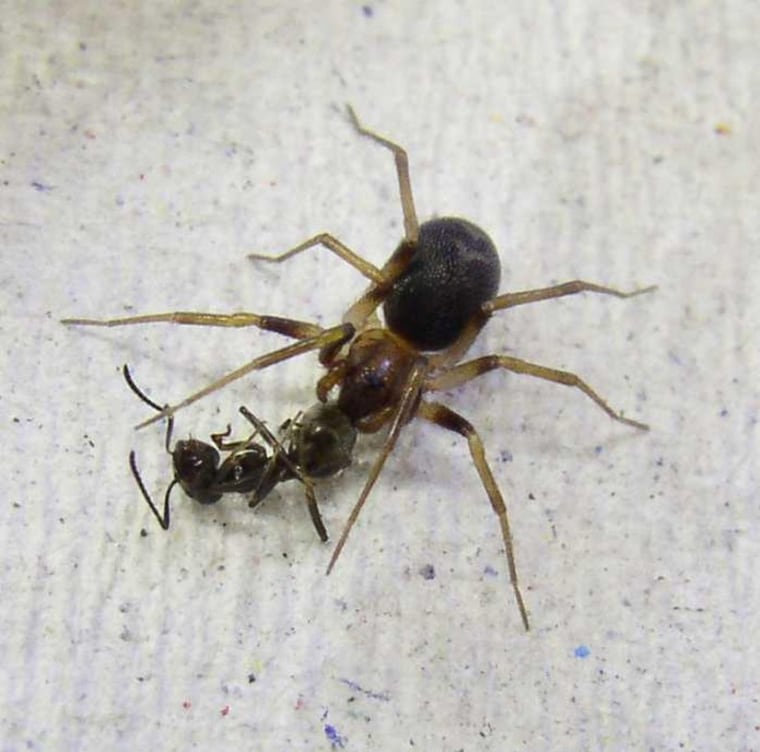Many meat-eating insects and animals, including humans, selectively feed on certain body parts to balance their nutritional intake, says a new study.
“Would you like a leg or some breast meat?” may not be a life-or death-question for people sitting around a dinner table topped with other goodies, but for predators like spiders and wild cats that repeatedly eat only one or two different species, the decision could be the difference between keeling over or living to enjoy another meal.
The study, accepted for publication in the journal Animal Behavior, is the first to demonstrate how specialist carnivores achieve a balanced diet by choosing to eat certain body parts and leave others behind. These choices are probably driven by hunger pangs.
For ant-eating Zodarion spiders, the focus of the study, such pangs might compel them to eat an ant head, leg or gut.
Stano Pekar, lead author of the study, told Discovery News that since the spiders “are choosy about the various body parts, we assume that they get something like hunger cravings for specific nutrients. It has been shown previously for other predators, including spiders, that they select different types of prey or food according to their nutritional needs.”
Pekar, a researcher in the Department of Botany and Zoology at Masaryk University, and his colleagues collected Zodarion spiders — a tiny and rarely seen nocturnal arachnid — from various places in Brno, Czech Republic.
The first tests within the study were like mad scientist cooking experiments. The researchers prepared and nutritionally analyzed different ant meals for the collected spiders. These meals consisted of whole ants, just the gasters (the bulbous-looking main body part), or the heads and appendages. The scientists then analyzed the choices spiders made when feeding on whole ants, and what the spiders’ survival rate was over the study period.
The spiders' survival was significantly affected by which body parts they fed on. The spiders that had to eat entire ants fared worse than spiders that were able to pick and choose ant parts. That’s probably because each of the ant parts provides different nutrients. The legs have a lot of nitrogen, the head has more protein and the gaster is “fattier,” with more calories.
Ants may protect their gaster “because it contains defensive chemicals, such as formic acid,” Pekar said. That doesn’t completely stop spiders from eating it, but the acid makes the gaster less appealing to spiders.
The findings about selective body part feeding apply to certain other spiders, insects and animals, especially those that eat just a handful of species, according to the scientists.
“Felid cats, such as cheetahs or lions, are often restricted in their diet because they catch mainly gazelles (in the case of cheetahs) or zebras (lions), so these game cats can also select only certain tissues from the entire prey animal. They can exploit only muscles if they need proteins, or fat reserves if they need lipids,” Pekar said.
Although most humans have access to many different types of food, a study conducted at Tufts University found that we tend to crave high-calorie items.
“Energy-dense foods, such as chocolate and some salty snacks, are those that pack the most calories per unit of volume, as compared to less energy-dense foods like fruits and vegetables, which have fewer calories per unit of volume,” explained Cheryl Gilhooly, a research dietician who led the study.
As a result, most of us tend to crave things like French fries over steamed broccoli. When our bodies change, however, the cravings can change too.
“This is quite apparent in pregnant women who have a very strong preference for certain types of food at various stages of their pregnancies,” Pekar said. “I assume that they need to supplement certain nutrients for the development of the baby.”
For people who want to lose weight, Gilhooly and her team advise that it’s best to not try to suppress cravings. Instead, don't give in to them, or substitute foods that taste similar, but have fewer calories.
